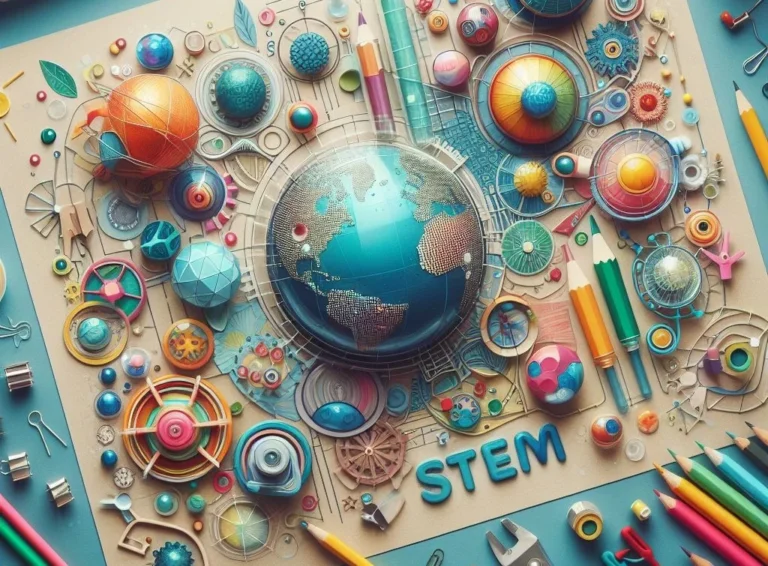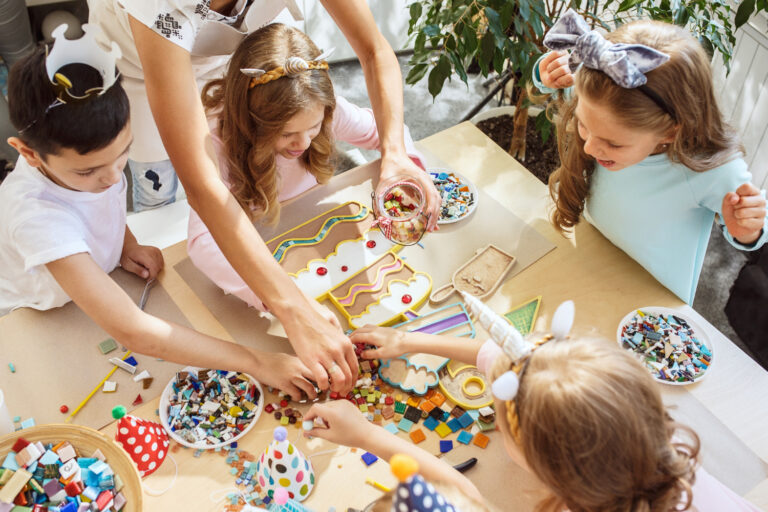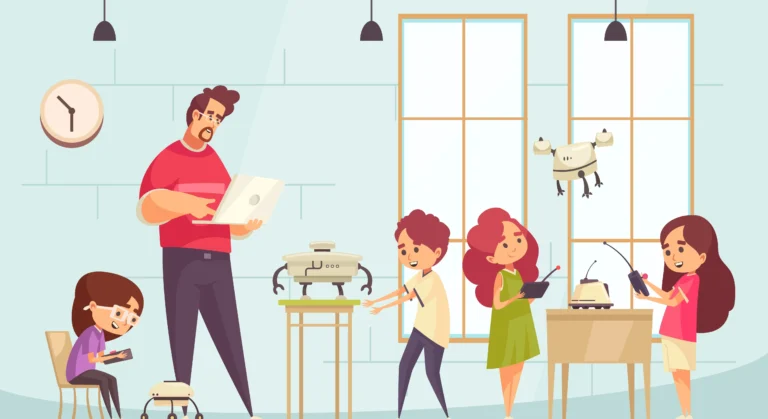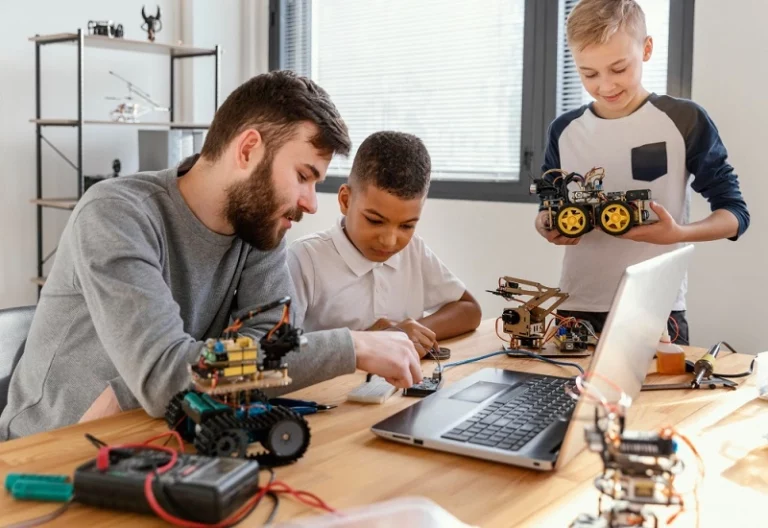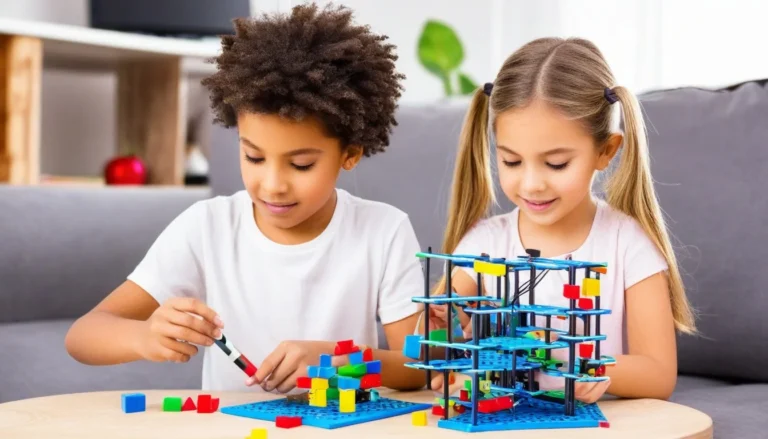Coding is a valuable education applicable to practically any future career or field of learning. With code tools, kids can develop essential current-generation literacy, learn how code works, and they can write the coding on their own. Coding tools help kids learn to code to target the roots of the program such as problem-solving, logical, and critical thinking. It may seem like a code tool is an adult skill, but kids as young as 2 or 3 can start work on building blocks of coding through fun toys and tools.
If you want kids to explore STEM (science, technology, engineering, and math) topics and learn the basics of code, they are never too young to start. Understanding that children differ in age, interests, and learning styles, this guide provides a comprehensive framework to select the coding tools tailored to different developmental stages. From preschoolers exploring the basics of sequencing to delving into more complex program concepts, each age group has unique needs that should be addressed and the appropriate coding platforms.
Furthermore, we emphasize the importance of engaging and educational content to ensure that the coding tools not only capture a child’s interest but also provide a structured learning experience. By incorporating real-world applications, parental controls, community support, and progress tracking, parents can create an enhanced coding environment that promotes both skill development and a positive online experience.
In the following sections, we will delve into specific criteria of selected coding tools, offering practical tips and considerations to guide parents in selecting tools that align with their child’s age, and overall learning journey. Whether introduce coding to expand your child’s programming skills, this guide is designed to empower parents to make informed choices that take care of their child’s passion for coding.
The importance of introduce coding for kids
Language teaches children communication skills and improves critical thinking. It is the foundation for both verbal and written skills. When a child learns a language, their brain expands to new heights and perspectives. Coding to kids is important because it instills a problem-solving attitude in them. If your child is excited about technology and computers, this is the best time to let them explore how to start coding, what the different programming languages are, and the best way to learn how to code. Kids who do coding are more likely to be successful in school because they focus on the task at hand instead of becoming distracted by what their peers are doing.
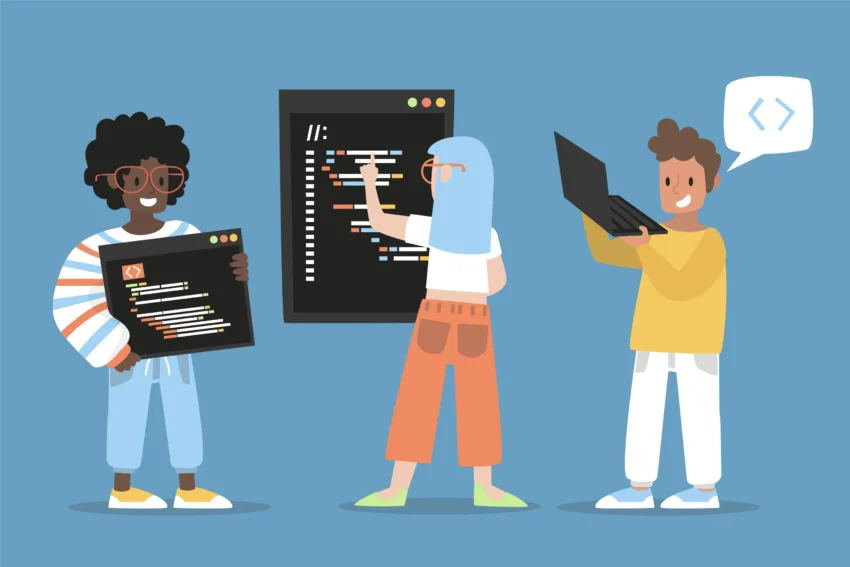
Coding is a gateway to STEM fields. reveals to kids coding, they may develop an early interest in STEM subjects, smooth the way for potential careers in these high-demand fields. Coding is a fundamental skill in STEM fields. The introduction of coding to kids can spark an early interest in these subjects and pave the way for potential careers in STEM-related fields. Coding offers children the opportunity to express themselves by building something new from scratch.
Popular Coding Tools for Kids
Several coding tools and platforms are specifically designed for kids to learn programs in a fun and interactive way. These tools often use visual programmer languages or game-based learner approaches to make coding more accessible for young learners. Here are some popular coding tools for kids:
Scratch
Scratch is a visual programming language. It is designed to teach programming concepts to beginners and make coding accessible to people of all ages. Scratch uses a block-based programming interface where users can drag and drop code blocks to create programs without typing out traditional code.
Hopscotch
Hopscotch is a traditional children’s game that is often played outdoors. The game’s origins can be traced back to ancient times, and various versions of it are played in different cultures around the world.
Code.org
Code.org is a nonprofit organization that offers a variety of coding courses for kids and adds beginner-friendly activities, puzzles, and games to teach program concepts.
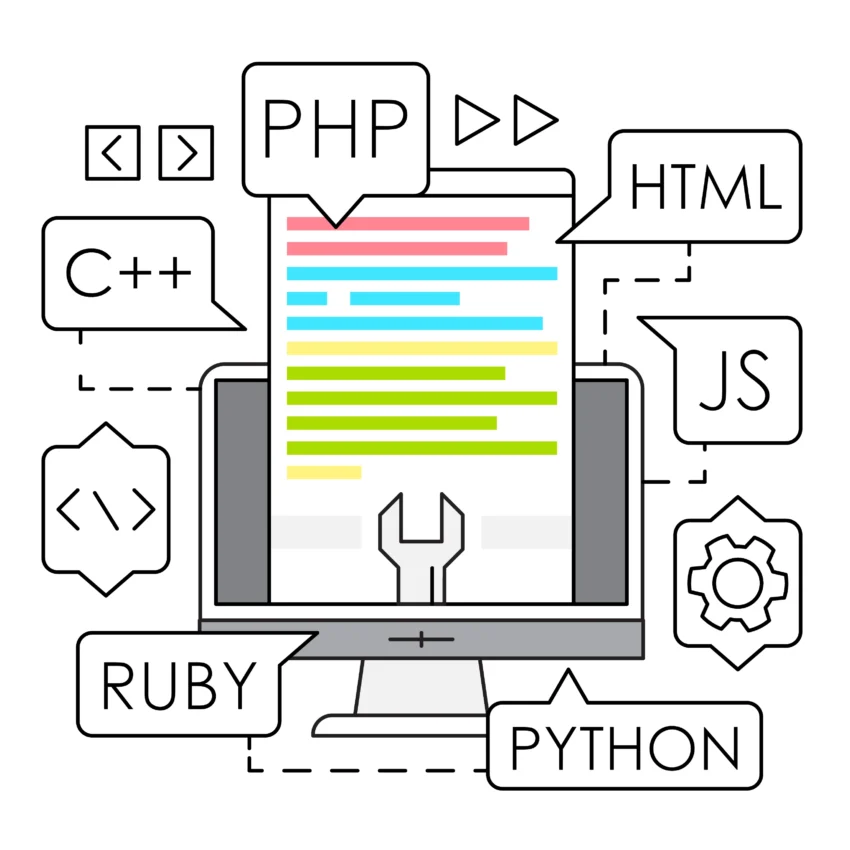
Potential career paths and industries
Coding is an in-demand skill used in almost every industry. Whether you envision a career as a programmer, game developer, or data scientist, it all comes with code. There are countless potential career paths and industries available, and the best fit for you depends on your interests, skills, and personal preferences. Here are some broad categories and examples to consider:
Computer Programmer
Computer programmers use programming languages to write, test, and maintain code. Computer programmers create software that performs useful tasks and work in large teams to write and update the code.
Web developer
Web developers build technical frontend and backend code for websites, often requiring overlap in web design. As a web developer, you’ll be working with various technologies and tools to build the front-end and back-end of websites.
Data Scientist
Data scientists apply scientific methods to extract insights and knowledge from structured and unstructured data, crucial for informed business decisions and improving products.
Conclusion
In conclusion, adopting the right code tools for kids is an important decision that can shape their early experiences with programs and foster a long-term interest in technology. Tailoring choices to the child’s age, interests, and developmental stage, ensures accessibility across devices, and embracing platforms with vibrant communities can enrich the learned journey. Parents should also consider the educational value of tools, ideally those that emphasize fundamental code concepts over mere syntax, and the potential for hands-on experiences to contribute to a well-rounded coding education.

